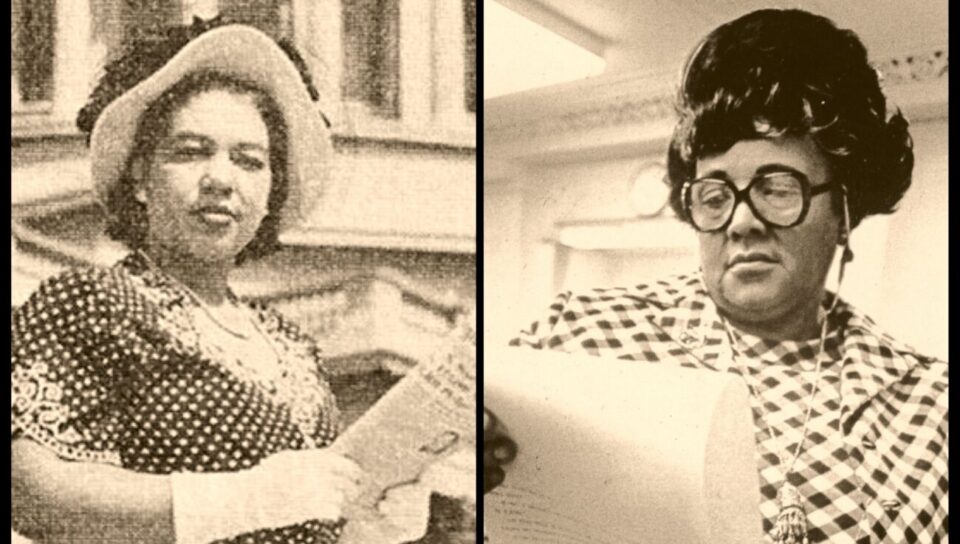Gayle King ‘Didn’t Know Their Names Before’
[btnsx id=”5768″]
Gayle King ‘Didn’t Know Their Names Before’
When “CBS Mornings” host Gayle King showed a video about two history-making Black journalists Saturday at the White House Correspondents’ dinner, the presentation gave overdue honors to Ethel Payne and Alice Dunnigan, the first two Black women in the White House press corps.
Even President Biden took note. “I’m glad you saw that tonight. I did not know that you were doing that. Reporters who shattered convention to cover a segregated nation.”
The moment inaugurated the White House Correspondents’ Association’s Dunnigan-Payne Prize as a lifetime achievement award, with the first given to the two women’s families.
King surprised many when the video ended, saying, “Until tonight, I didn’t know their names before.”
She added, “Their work lives on in the work of journalists of color today.”
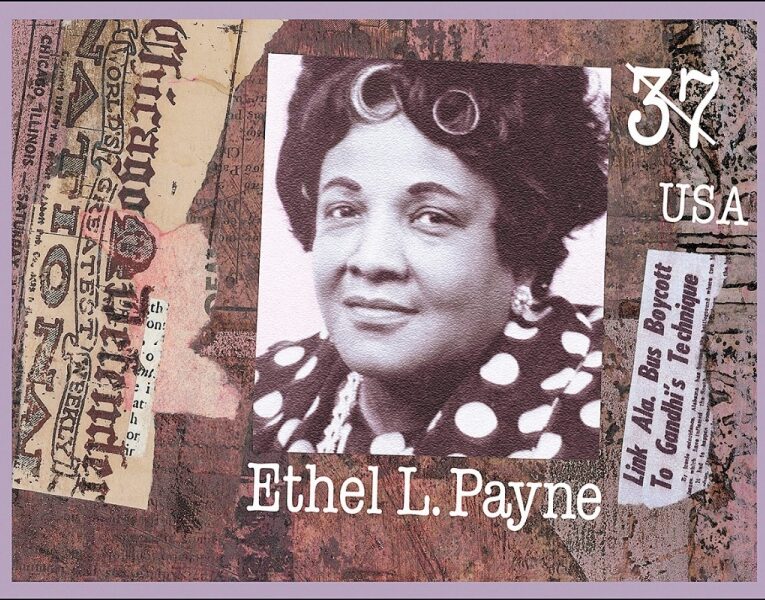 James McGrath Morris, who wrote a biography of Payne (pictured) in 2015 that runs nearly 400 pages, not counting the index, was one of those taking note.
James McGrath Morris, who wrote a biography of Payne (pictured) in 2015 that runs nearly 400 pages, not counting the index, was one of those taking note.
“Yes, King’s remark was remarkable,” the author of “Eye on the Struggle: Ethel Payne, the First Lady of the Black Press,” messaged Journal-isms Sunday. “I find it amazing she had not heard of Payne and Dunnigan. Had she never attended a NABJ conference? CBS contacted me looking for video of Payne. Among the places I told them to look was in their own archives. . . . In any case it’s satisfying to see attention given to these two women.”
The National Association of Black Journalists has indeed lifted both women over the years. In 2019, NABJ revived its Ethel Payne Fellowship, created in 1993, two years after her death. It is “a $5,000 award bestowed to a worthy journalist.
“The travel award provides an opportunity for an NABJ member to gain foreign correspondence experience in Africa and the necessary assistance to complete a project or singular report on Africa. The fellowship is named for the first female, African American commentator employed by a U.S. network when CBS hired her in 1972,” the association announced.
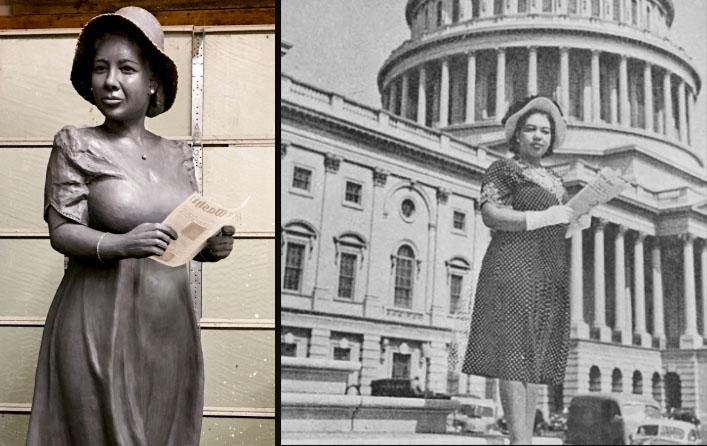
In 2018, NABJ publicized the unveiling of a life-size bronze sculpture of Dunnigan, the first African American woman to receive press credentials to cover the White House and Congress. The statue went on display at the Newseum in Washington, and then was moved to her home state of Kentucky.
Carol McCabe Booker condensed Dunnigan’s 1974 self-published, out-of-print autobiography into “Alone Atop the Hill: The Autobiography of Alice Dunnigan, Pioneer of the Black Press,” and had Dunnigan’s words republished in 2015. She, too, said she was surprised by King’s remark. “Every woman and every minority in, or aspiring to be in, the profession, would benefit from knowing her story,” Booker messaged.
Dorothy Tucker, the current NABJ president, did not respond directly to a question about King’s comment.
However, a predecessor, Dorothy Butler Gilliam, messaged, “It made me a little sad to hear Gayle King’s remark. Ms. King has done terrific work herself but as Black women journalists, we can draw much wisdom and support from knowing the exploits of those who came before and opened doors.
“Both Dunnigan and Payne were extraordinary journalists who had to overcome odds that today’s Black women journalists do not face. Their achievements against the odds can inspire the current generation of Black women journalists to make history in the present by being as courageous and dedicated to truth-telling as our forebears.”
Since the online version of Journal-isms debuted in 2002, Payne’s name has appeared in 30 Journal-isms columns; Dunnigan’s in 19.
In the last few years, Black newspapers in Chicago have reported that Payne’s childhood home was crumbling and that she lies buried in an unmarked grave.
Chicago NABJ president Brandon Pope said he was surprised as well by King’s remark, but praised the video, which King introduced Friday on her show. “It was a terrific piece and honor for ‘The First Lady Of The Black Press.’ So many of us can credit her voice for amplifying our own.”
Pope added, “NABJ-Chicago Chapter has created a scholarship in Ethel Payne’s honor for local journalism students. We have also secured funding for a headstone at her gravesite, and are working through a family liaison on next steps.” He said the chapter received $5,000 from the Field Foundation for the project.
[As for the crumbling house, “Nothing has been done,” reporter Erick Johnson, who wrote the original story in the Chicago Crusader, said Monday.]
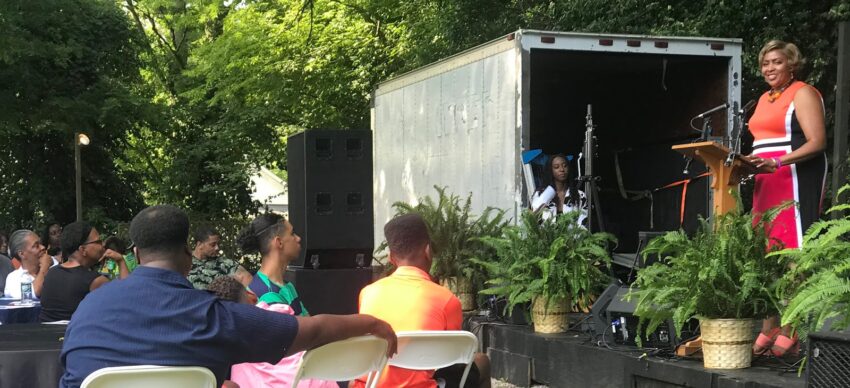
Unlike these others, Sonya Ross, who covered the White House as an Associated Press reporter and advocated recognition of both women, said King’s response was understandable.
“I wasn’t surprised at all,” Ross told Journal-isms. “The history of political reporting has always obscured Black women’s contributions. The White House Correspondents’ Association is working to fill gaps and holes in its own 108-year history. The good news is the WHCA has embraced our history as part of its own, and I am willing to do all I can to help them with that.
“Last week, WHCA executive director Steve Thomma confirmed that their record on Black WHCA board members squares with mine. So I’m glad about that.
“Like many others, I thought Ethel Payne was the first Black woman White House correspondent. Many websites say this even now, or erroneously identify others. I had never heard of Alice Allison Dunnigan before 2012. At the NABJ Hall of Fame ceremony that year, newly inducted Gwen Ifill and I chatted afterward about those of us who had done the White House beat before, how undocumented a group we are, and that we needed to fix that. I began compiling a list the next day, and Googled up Alice’s name.
“When I read some of the things she accomplished, my jaw hit the floor. How could I NOT know about [her] all this time? I decided then to pull her — all of us, really — out of obscurity. I nominated Mrs. Allison Dunnigan for the NABJ Hall of Fame the following year.
“Fast forward to today. My startup, Black Women Unmuted, has devoted 2022 to observing the 75th anniversary of Alice Allison Dunnigan opening the pinnacle of political journalism to Black women. Right now, we have a reporting project underway through which students at Howard University and the University of Maryland are identifying our Black women White House correspondents since 1947, starting with my list of 30, and documenting their contributions.
“Later this month, I am going back to Mrs. Allison Dunnigan’s hometown of Russellville, Ky., for a ceremony honoring her as a first recipient of the new Dunnigan-Payne Prize. And we have other events coming as well.
“I am determined that the greatness of the women in this sisterhood will never again be lost to the passage of time.”
- Jon Allsop, Columbia Journalism Review: “More than eighty guests subsequently tested positive, including numerous reporters.” The elitist coverage of the Correspondents’ Dinner and the coronavirus (May 2)
- Farnoush Amiri and Will Weissert, Associated Press: Biden roasts Trump, GOP, himself at correspondents’ dinner
- Peter Baker, New York Times: Jokes, Glamour and a Try for Normalcy as Correspondents’ Dinner Returns
- Karen Grigsby Bates, NPR: From Selma To Eisenhower, Trailblazing Black Reporter Was Always Probing (March 20, 2015)
- Black Women Unmuted: Our White House Reporter Firsts, Unmuted
- Todd Steven Burroughs, Drums in the Global Village: “You Know Because You Read The AFRO!” To Gayle King And Others Like You: It’s Really Okay If You Just Lie Next Time 🙂 (May 2)
- CBS Mornings: First two Black women in White House press corps honored with lifetime achievement awards
- The Grio: Gayle King took a moment to honor @AprilDRyan and led the room to a roaring standing ovation (Twitter)
- Emil Guillermo, Asian American Legal Defense and Education Fund: White House Correspondents Dinner is milestone for normalcy as Biden leads with First Amendment
- Kara Harris, Twitter: Shoutout of a lifetime on national television. Best mentor in the business, thank you @Yamiche
- Sherrilyn Ifill, Twitter: Well-deserved standing ovation for #Baltimore’s own @AprilDRyan at tonight’s #WHCD.
- New Citizens Press, Lansing, Mich.: Black Journalist Ethel Payne to Be Commemorated on U.S. Postage Stamp (June 16, 2002)
- Sheryl Gay Stolberg, New York Times: Before Washington’s ‘Nerd Prom,’ Lots of Risk-Benefit Calculation
- Max Tani, Politico: Jonathan Karl tests positive for Covid after sitting next to Kim Kardashian (May 3)
- Matt Wilstein, Daily Beast: Trevor Noah Holds Nothing Back in Brutal White House Correspondents’ Dinner Roast
- Jada Yuan, Washington Post: Pent-up partying before — and long after — the correspondents’ dinner
Job Was to Help Kill His Own Patients
April 29, 2022
Doctor Bares His Death-Row Dilemma
News Leaders Postpone Conference, Citing COVID
Cori Murray Steps Down as Essence Top Editor
Columnists Say It’s Time for Dems to Hit Back
Anchor Sage Steele Sues ESPN, Disney
White House Reporters to Honor Two Black Pioneers
Despite Black-Press Group, FDA Moves on Menthol
Baquet to Lead N.Y. Times Investigative Fellowship
A Latino Accepts Cartoonist Prize: ‘It’s About Time!’
Beaten Afghan Journalists Starting Over in U.S.
Africans Fleeing Ukraine Fight for Respect, Dignity
Race, Inequality Prominent in Headliner Awards
Short Takes: Shannon Sims and Symone Woolridge; Corey G. Johnson, Rebecca Woolington and Eli Murray; Zach Stafford and Fire Island, N.Y.; Delano Massey; advancing Indigenous press freedom; Yvette Cabrera; Chicago Reader; Democracy Fund; Al Ortiz; Glenn Proctor;
Yvonne Latty; AP style updates on dual-heritage people, inclusiveness, critical race theory, LGBGTQ; Boyzell Hosey; Karsonya “Kaye” Wise Whitehead; unqualified social service workers; News Media Alliance and MPA – The Association of Magazine Media; Black Women Photographers collective; Phil Hendrix and Walter Morris of Black News Channel; Jenni Monet; Jane Monreal; Laura Soto-Barra and Keith Jenkins; Native American Journalists Association and indigenous languages; Syrian journalist searching for citizen-journalist brother.
Additional items posted April 30.
Homepage photo: South Carolina Department of Corrections
[btnsx id=”5768″]
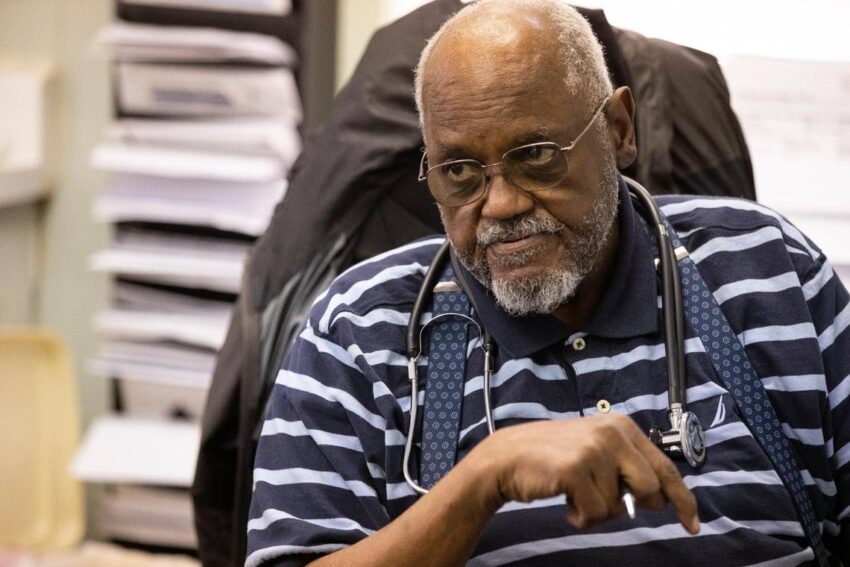
Doctor Bares His Death-Row Dilemma
When James Terry Roach “started slitting his wrists after being convicted as a teenager, the doctor had been the one to help ease his pain with medication. Now, the warden was strapping those familiar arms into the electric chair as the physician stood nearby,” Chiara Eisner wrote Wednesday for The State in Columbia, S.C.
“Dr. Green Neal has kept his execution experience secret for 37 years. But in March, the South Carolina Department of Corrections announced it was ready to start shooting the condemned to death with a firing squad — and that a doctor’s presence would again be required in the chamber. The state’s first executions since 2011 were scheduled to occur on April 29 and May 13 but were temporarily put on hold by the S.C. Supreme Court last week. When they do happen, the doctor in the death chamber will again be a physician currently working for Corrections, not someone hired from outside, the agency confirmed.
“Neal has now decided to tell his story. He is only the second physician in recent history to talk in detail about his execution role with the press. . . .”
The near-absence of such first-person accounts made the story “very rare and important for people to read,” Eisner told Journal-isms Friday. It was a responsibility she took “really seriously” because Neal had not told his family members or his patients about this part of his work.
Neal, 76, is a Black internal medicine specialist who treats many who are older, low-income and dealing with multiple diseases. He told Journal-isms by phone Thursday that he decided to talk because “someone needs to know what the people go through.” Eisner has been writing about executions and execution workers.
A Meharry Medical School graduate, Neal left the execution business in 1996. After Eisner approached him, he said he checked out her journalism and talked with some of the sources in her stories. He was particularly impressed by “Cut Off,” about a majority-Black ZIP code where limbs were being amputated at an alarming rate. Eisner did not write the story, but helped promote it.
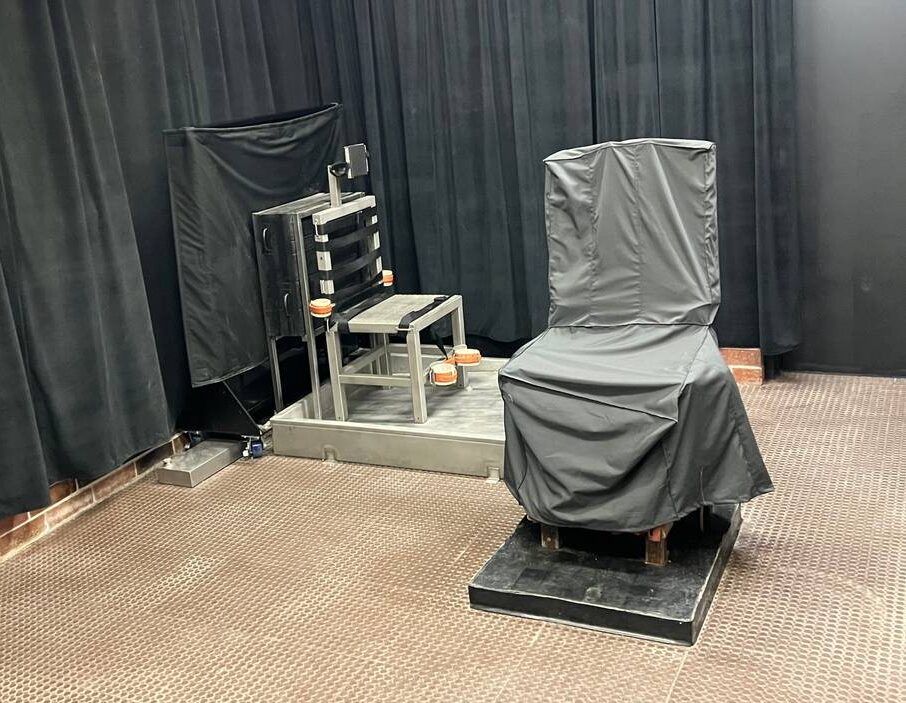 About 70 percent of the death row inmates were Black while he was with the Corrections Department, Neal said.
About 70 percent of the death row inmates were Black while he was with the Corrections Department, Neal said.
When Eisner wrote her story, she was sure to include the history behind that statistic:
“For Black people in South Carolina, the state has long been a dangerous place. Before slavery was abolished, masters could kill the workers they owned and get away with it. After slavery was outlawed, the same thing happened under a different name. The state saw more lynchings of Black people per capita than most other places in the country.”
But Eisner also focused on the ethical dilemma of a doctor who took an oath to “do no harm” yet is part of the state-sanctioned killing process.
“The silence of his peers is no accident,” the reporter wrote. “Doctors like him are stuck in a seemingly impossible predicament: They are required by state protocols to participate in executions even as they are prohibited by their profession from being involved.
“Across the country, physicians have been told to write prescriptions for drugs used in lethal injections, insert the needles that carry those drugs into people’s veins, and like Neal, inspect and pronounce people dead after the killing is done by other means, like the electric chair.
“Each of those actions is considered unethical by national professional societies. The American Medical Association regards any official participation other than the signing of a death certificate as contrary to a doctor’s duty to heal and do no harm. The American College of Correctional Physicians is still more strict. It has stated prison doctors should not be involved in any aspect of the execution process.”
Neal contines to practice from an office that “could be confused with any small house in the city.”
During the executions, “While 2,300 volts of electricity jerked his patient around in the chair, he’d glue his eyes to the floor,” Eisner wrote. “Only after the nurse’s nod would he approach the body, feel for a pulse and listen for a long time through a stethoscope, waiting for the heart to finally stop beating. When the silence in his ears matched the stillness of the room, the doctor would send a nod of his own to the warden. He would sign the death certificate. Then, as the sun began to rise, he’d go straight home and tell nobody what he had done.”
His co-workers addressed their situations in their own ways. “There are other stories” that haven’t been told,” Neal told Journal-isms. Most decisively, “People quit their jobs.”
(Photo of electric chair: South Carolina Department of Corrections)

News Leaders Postpone Conference, Citing COVID
The News Leaders Association “is doing a pivot on our Murfreesboro-Nashville conference scheduled for May 18-20,” the association of newspaper editors announced late Friday.
“We heard great feedback from journalists on the exceptional sessions, workshop and keynote speakers scheduled, but we also heard from too many that the timing wasn’t right due to the lingering pandemic, as well as having conflicting events to attend in May, such as graduations. We are postponing the conference and will announce our new plan for regional events soon.
“For our Awards winners, we will have a virtual celebration soon to honor your outstanding work. Details to come.”
- “Amy Goodman and Denis Moynihan, “Democracy Now!”: The U.S. Ignores the Ongoing Pandemic at Our Own Peril
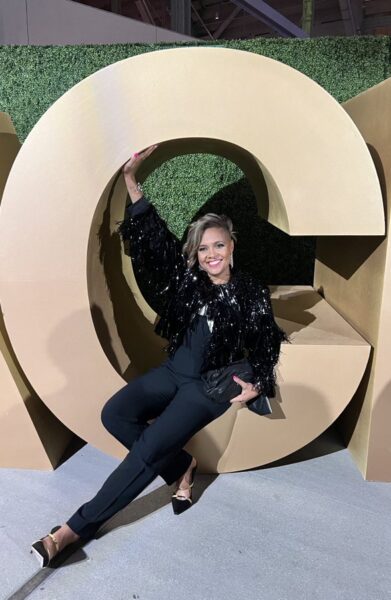
Cori Murray Steps Down as Essence Top Editor
Cori Murray, the top editor at Essence magazine, is stepping away from the magazine after 22 years, she announced Friday on Twitter.
“Dear
@Essence
— C ya later
? Cori Murray’s Farewell Receipts:
“215 Essence cover stories edited (13 written)
“186 Yes, Girl! Podcasts
“15 Black Women in Hollywood
“9 Black Women in Music
“9 issues as editorial lead
“1 National Magazine Award
“One magical 22 year ride… Thank you.”
Murray, a former entertainment editor at Essence and co-host of Essence’s “Yes, Girl” podcast, was named lead editor of the magazine in February 2021, despite carrying the title of deputy editor.
Essence calls itself ” the leading and only 100% Black-owned media, technology and commerce company at scale dedicated to Black women and communities.” Murray kept the focus on celebrating Black women and reporting on their tastes, celebrities and lifestyles.
It made news in February when it featured the first same-sex couple to appear on the front of the magazine in its 52-year history.
““Honoring breakthrough moments is a powerful theme in our March/April issue. Since Niecy Nash and Jessica Betts’ surprise announcement that they were married in 2020, they have become a model of what a relationship can be when you love unapologetically,” Murray said in a statement.
“Essence is still the largest Black women’s magazine surrounded by few newcomers,” Samir Husni, founder and director of the Magazine Media Center and known as “Mr. Magazine,” messaged Journal-isms on Saturday. “It’s print presence is a testament to the role it plays both for its audience and the marketplace. It refuses to just be the candle that lit the way like many others, but rather continues to be the candle that continues to lead the way.”
Essence has not announced Murray’s departure or indicated a successor. “Please stay tuned for announcements,” spokesperson Tavia Mapp-Deterville messaged.
Essence, a monthly, had a total average circulation of 1,068,756 for the six months ending Dec. 31, according to unaudited figures from the Alliance for Audited Media. Of that, 1,041,843 were subscriptions and 26, 913 from single copy sales.
Columnists Say It’s Time for Dems to Hit Back
When Democratic Michigan state Sen. Mallory McMorrow pushed back against a Republican colleague who falsely accused her of wanting to “groom and sexualize kindergarteners,” and hold 8-year-olds responsible for slavery, some Black columnists said it was about time.
McMorrow’s April 19 speech on the Michigan Senate floor (video) came amid sliding poll numbers for President Biden, including among Black voters. Some columnists are making a connection.
“The entire speech runs less than five minutes,” wrote Clarence Page, syndicated Chicago Tribune columnist. “It’s worth hearing in full, especially by other Democrats, hamstrung with what Democratic consultant James Carville calls ‘woke’ ‘faculty-lounge’ political talk. McMorrow offers a short but informative demonstration in the power of words, concise and direct, to push back against the far-right’s toxic waste.”
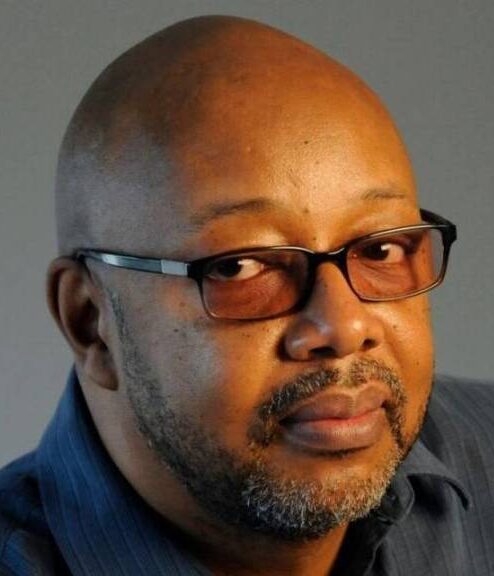 Wrote Leonard Pitts Jr. (pictured), syndicated Miami Herald columnist, “One hopes McMorrow’s party is taking note. One of their problems (there are many) is that Democrats communicate their values with all the natural ease of a giraffe doing ballet — while ducking rocks. McMorrow found a rock or two of her own. More important, she found an effective way to state her values. In a word: fearlessly. Democrats could do worse than to emulate her. On every social issue, they own the moral high ground. They should challenge Republicans to climb.”
Wrote Leonard Pitts Jr. (pictured), syndicated Miami Herald columnist, “One hopes McMorrow’s party is taking note. One of their problems (there are many) is that Democrats communicate their values with all the natural ease of a giraffe doing ballet — while ducking rocks. McMorrow found a rock or two of her own. More important, she found an effective way to state her values. In a word: fearlessly. Democrats could do worse than to emulate her. On every social issue, they own the moral high ground. They should challenge Republicans to climb.”
The Michigan mud is part of the national nastiness that includes ratcheting up culture wars, such as the new Florida law, under the guise of “parental rights,” banning public school teachers in the lower grades from mentioning sexual orientation or gender identity.
“Democrats, for their part, have almost ceded the parental rights argument, instead of fighting back and framing these efforts as oppressive and backward,” wrote Charles M. Blow in the New York Times. “They do not recognize that oppression by conservatives in this country is like an amoeba: simple, primitive, pervasive and highly adaptable. It simply shifts its shape to fit the environment and argument.
“Republicans are using white parental fear, particularly the fears of white moms, worried about harm coming to their children, to attract suburban white women and get them to the polls. The oppression is a bonus.”
 The Washington Post’s Jonathan Capehart wrote under the headline, “Don’t let Mallory McMorrow fight bigotry alone.” He called McMorrow’s speech “a blueprint for Democrats who are accustomed to cowering in fear of Republican culture war attacks.”
The Washington Post’s Jonathan Capehart wrote under the headline, “Don’t let Mallory McMorrow fight bigotry alone.” He called McMorrow’s speech “a blueprint for Democrats who are accustomed to cowering in fear of Republican culture war attacks.”
In Alabama, Roy S. Johnson (pictured) went in search of a “Reasonable Republican” who would stand up against the slime. He reported back on al.com Tuesday that “Surprisingly, and pleasantly so, many did. Many more than I thought might.”
Capehart’s Post colleague Perry Bacon Jr. connected dots, writing of the Biden administration, “one thing is clear — emphasizing unity and ducking divisive issues hasn’t worked. The Obama and Biden presidencies have together proved that. And now we’ve learned that being old, White and male doesn’t make this approach any more effective.”
 Dean Obeidallah (pictured) is not a Black columnist, but of Palestinian and Italian descent. Still, on cnn.com, he addressed the issue of language, specifically the Republican recasting of “woke” as a pejorative.
Dean Obeidallah (pictured) is not a Black columnist, but of Palestinian and Italian descent. Still, on cnn.com, he addressed the issue of language, specifically the Republican recasting of “woke” as a pejorative.
“Beyond making 2022 a referendum on Republican radicalism, Democrats should also embrace being woke,” Obeidallah wrote. “After all, what would you call people who ended slavery and Jim Crow, championed the 19th Amendment ensuring women had a constitutional right to vote, protested leading to the passage of the 1964 Civil Rights Act and the 1965 Voting Rights Act and more, all in an effort to perfect our nation? They were woke.
“Democrats should frame wokeness as people who have pressed for equality and progress. Contrast that with those in the GOP who want to take the United States back to a time where women didn’t have reproductive freedom, books were banned and worse.”
- Perry Bacon Jr., Washington Post: Team Biden believed their own hype — and that has cost them
- Nicholas Confessore, New York Times: Tucker Carlson Stoked White Fear to Conquer Cable (first of three-part series)
- Mary C. Curtis, Roll Call: When did admitting mistakes become weakness for Republicans?
- Editorial, Miami Herald: Why do Florida Republicans hate Critical Race Theory? Because they engage in the racist behavior it exposes
- Renee Graham, Boston Globe: Moscow in the Sunshine State (April 22)
- Jean Guerrero, Los Angeles Times: Elizabeth Warren knows how Democrats can win the midterms. It starts with canceling student loan debt
- Michael Harriot, The Grio: The Democratic Party might be trash, but let’s stop pretending it matters
- J. Michael Luttig, The Atlantic: The Republican blueprint to steal the 2024 election
- Ruben Navarrette Jr., Washington Post Writers Group: The legacy of Reagan still looms large. It’s the Republican Party that got smaller.
Anchor Sage Steele Sues ESPN, Disney
 “ESPN anchor Sage Steele (pictured) sued the network and its parent, Walt Disney Co. . . . alleging the company retaliated against her for comments she made in a podcast interview, breaching her contract and violating her free-speech rights,” Joe Flint reported Tuesday, updated Wednesday in the Wall Street Journal.
“ESPN anchor Sage Steele (pictured) sued the network and its parent, Walt Disney Co. . . . alleging the company retaliated against her for comments she made in a podcast interview, breaching her contract and violating her free-speech rights,” Joe Flint reported Tuesday, updated Wednesday in the Wall Street Journal.
“In comments last September on a podcast hosted by former National Football League quarterback Jay Cutler, Ms. Steele touched on political and social topics, questioning Covid-19 vaccine mandates and former President Barack Obama’s decision to identify as Black instead of biracial.
“After Ms. Steele’s remarks drew criticism in the press and on social media, ESPN forced her to issue an apology and temporarily benched her, according to the suit, which was served in Connecticut, where the network is based.
“ESPN also retaliated by taking away prime assignments and failing to stop bullying and harassment by Ms. Steele’s colleagues, the suit alleges. . . .
“In a statement, ESPN said, ‘Sage remains a valued contributor on some of ESPN’s highest profile content, including the recent Masters telecasts and anchoring our noon SportsCenter.’ ”
- Dustin Jones, NPR: Anchor Sage Steele is suing ESPN over free speech claims
White House Reporters to Honor Two Black Pioneers
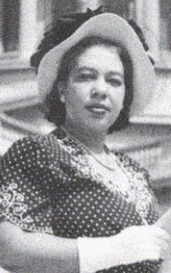 The White House Correspondents’ Association is creating its first-ever lifetime career achievement award, named after the first two African American women to become members of the White House press corps, the association announced Monday.
The White House Correspondents’ Association is creating its first-ever lifetime career achievement award, named after the first two African American women to become members of the White House press corps, the association announced Monday.
“From here on, the Dunnigan-Payne Prize for Lifetime Career Achievement will be awarded on an occasional basis at the discretion of the WHCA board to recognize meritorious service throughout an individual’s career as a White House correspondent.
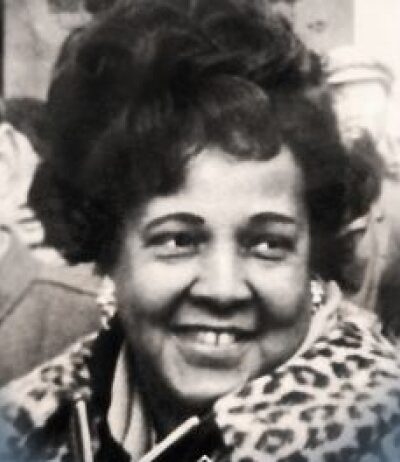 “The namesakes of the award, the late reporters Alice Dunnigan of the Associated Negro Press (top photo) and Ethel Payne (at left) of the Chicago Defender, will be the first recipients of the prize. Their relatives will be on hand to accept the posthumous honor at the White House Correspondents’ Dinner in Washington on April 30.
“The namesakes of the award, the late reporters Alice Dunnigan of the Associated Negro Press (top photo) and Ethel Payne (at left) of the Chicago Defender, will be the first recipients of the prize. Their relatives will be on hand to accept the posthumous honor at the White House Correspondents’ Dinner in Washington on April 30.
“Gayle King, co-host of ‘CBS Mornings,’ will present the award at the dinner. . . .”
Sonya Ross, the first Black woman elected to the association’s board, posted on LinkedIn, “The Dunnigan-Payne Prize for Lifetime Career Achievement is fitting recognition not just for these ladies, but for every Black woman who pushed past racism and sexism over the past 75 years to reach the pinnacle of American political reporting and prove that this sport, long dominated by men, is a girl’s game too.”
- Aaliyah Butler, Howard University: Howard University Announces Three 2022 White House Correspondents’ Association Scholarship Winners (March 31)
- Bry’onna Mention, Essence: Yamiche Alcindor And Kristen Welker Talk Return Of WHCD, Mentorship And The Significance Black Journalists
- Roxanne Roberts, Washington Post: White House correspondents’ dinner presses on, after covid delays and Trump
- Brian Steinberg and Marc Malkin, Variety: White House Correspondents Hope Dinner Gives More Than Laughs
- Update: Matt Wilstein, Daily Beast: Trevor Noah Holds Nothing Back in Brutal White House Correspondents’ Dinner Roast

Despite Black-Press Group, FDA Moves on Menthol
The Food and Drug Administration laid out a plan Thursday to ban menthol cigarettes and flavored cigars, enlisting support from the NAACP and Black medical organizations.
The National Newspaper Publishers Association, the trade-organization of Black-press publishers, had opposed such a ban when it was before District of Columbia officials, joining the National Action Network in saying that a ban would result in more Blacks targeted as potential violators.
“The FDA estimates that, if menthol cigarettes are no longer sold in the U.S., rates of smoking would go down 15% within 40 years and up to 654,000 smoking-related deaths could be avoided over the next four decades, more than one-third of those preventable deaths being among Black people,” Rose Wagner reported for Courthouse News Service.
“For about 85% of Black smokers, menthols are their cigarette of choice.”
Standing with the FDA as it made its announcement were Portia White, NAACP vice president of policy and legislative affairs; Kimberly Jeffries-Leonard, Ph.D., president of The Links, Inc.; Dr. Rachel Villanueva, president of the National Medical Association and Cassandra McCullough, president of the Association of Black Cardiologists.
The African American Tobacco Control Leadership Council and Action on Smoking and Health sued the agency in 2020 for not acting quickly to ban menthol cigarettes.
NNPA, which has received thousands of dollars from the tobacco industry and was backed by some Black and Hispanic law enforcement executives, argued that criminalizing the cigarettes would only lead to more clashes among Blacks, Hispanics and police. Benjamin F. Chavis Jr., president of the NNPA, told Journal-isms last year that “this is not about money,” but unintended consequences. A black market in menthol cigarettes could lead to confrontations with police that could have deadly consequences.
However, NAACP President Derrick Johnson said in a statement Thursday, “The targeting and marketing of menthol flavoring by the tobacco industry have had a devastating impact on our community. Menthol-flavored cigarettes have induced many children and adults, resulting in lifelong addictions, health challenges, and ultimately killing our loved ones. Today is a huge win for equity, justice, and public health concerns. When the ban goes into effect, no longer will manufacturers and retailers be able to hide behind the poison that they push. Any enforcement should be placed on the industry and not the victims of predatory marketing practices.
“The change in policy is long overdue and consistent with the 2009 decision to ban all other flavored cigarettes. The NAACP has no greater priority than the safety of our communities and tearing down the systems that have been built to oppress us. After fighting against deadly menthol products for decades, today is a victory for Black America.”
- Matthew Perrone, Associated Press: Plan to ban menthol cigarettes prompts late lobbying blitz (April 22)
Baquet to Lead N.Y. Times Investigative Fellowship
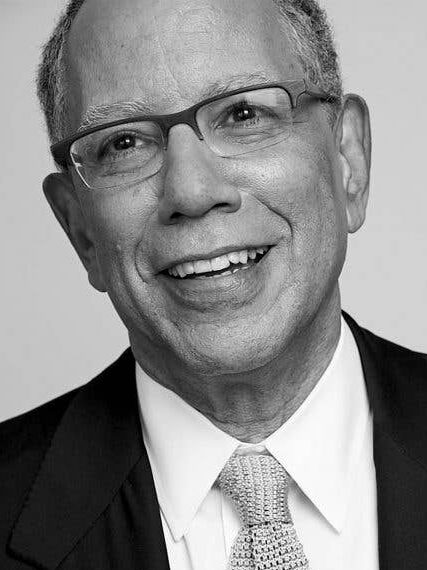 “Dean Baquet (pictured) will lead a new local investigative journalism fellowship at The New York Times” when he steps down as executive editor in June, Publisher A.G. Sulzbeger announced Tuesday.
“Dean Baquet (pictured) will lead a new local investigative journalism fellowship at The New York Times” when he steps down as executive editor in June, Publisher A.G. Sulzbeger announced Tuesday.
“The year-long fellowship will produce investigative projects focused on the state and local level, where deeply reported accountability journalism is most needed. It will offer a rare opportunity for up-and-coming journalists, especially those with backgrounds that are underrepresented in newsrooms and investigative reporting.
“It will give them the time and space to focus on ambitious, resource-intensive projects and the chance to learn investigative reporting skills from the very best in the business — Dean and a group of veteran investigative editors whom he’ll handpick. . . .”
Sulzberger called Baquet “perhaps the finest editor The Times has ever known.”
- Amanda Darrach, Columbia Journalism Review: Dean Baquet & Joe Kahn: What’s next for the New York Times?
- Dan Kennedy, Media Nation: Joe Kahn seems unlikely to fix The New York Times’ broken political coverage (April 20)
- John F. Harris, Politico Magazine: Bland Ambition: What the Joe Kahn Choice Says About the New York Times
- Christopher Ingraham, The Why Axis: When millionaires decide what’s news (April 20)
- New York Times: A New Role for Astead Herndon
- Geneva Overholser, Medium: What in the world does the Times mean by “independence?!” (April 22)
- Erik Wemple, Washington Post: Dean Baquet’s hands-on Times run is coming to a close

A Latino Accepts Cartoonist Prize: ‘It’s About Time!’
Lalo Alcaraz, the Los Angeles-based political cartoonist, Tuesday became the first Latino awarded the Herblock Prize, a $15,000 award named after the late Washington Post syndicated editorial cartoonist Herb Block.
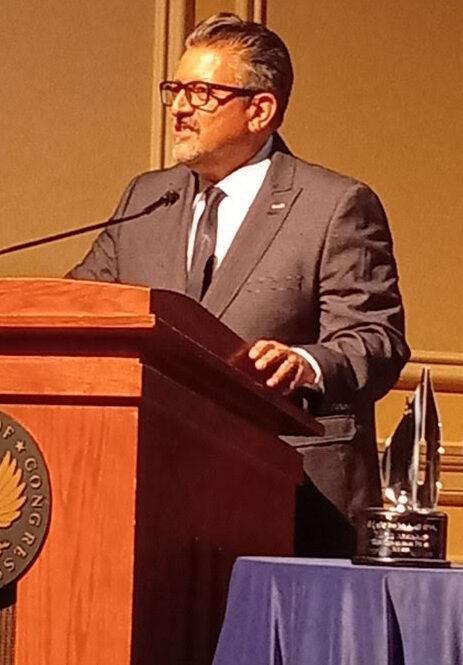 “As many of my friends and fans said when the news broke about the Herblock Prize winner, me, this year, ‘it’s about time!'” Alcaraz (pictured, by Patricia Guadalupe) (video) said from the lectern at the Library of Congress in Washington.
“As many of my friends and fans said when the news broke about the Herblock Prize winner, me, this year, ‘it’s about time!'” Alcaraz (pictured, by Patricia Guadalupe) (video) said from the lectern at the Library of Congress in Washington.
“Alcaraz said the recognition confirms that ‘representation matters’ in the editorial pages of newspapers but also on TV, film, literature and everywhere children and society look to,” Patricia Guadalupe added for NBC News.
Michael Cavna wrote in The Washington Post, “The jurors made special mention of Alcaraz’s homage to ‘Tierra o Muerte (Land or Die),’ artist Emanuel Martínez’s 1967 work depicting Mexican revolutionary Emiliano Zapata that became iconic during the Chicano movement. They appreciated how Alcaraz replaced Zapata’s rifle with a vaccine needle and titled the image ‘Vacuna o Muerte’ — to create ‘a work that draws inspiration from the past in order to tackle the current pandemic. (pictured above the headline).
“(His illustrations often nod to artistic traditions, including wood cuts and Mexican muralism.)
“ ‘No other political cartoonist working in the U.S. brings as much passion, dedication and brilliance to the fight for fair immigration at the border and justice for the Latino community,’ the Herblock Prize judges said of Alcaraz’s distinctive perch in political journalism.
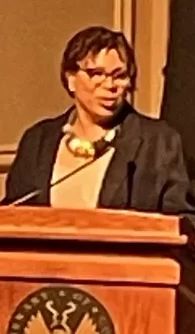 In a lecture after Alcaraz accepted the award, NPR host Michel Martin (pictured, by Sommer Hill/NPR) pleaded for assistance to “news deserts” around the country, spoke of her satisfaction in not having to be “the first” to undertake many of her accomplishments, and designated the social justice organization to whom she would donate her $20,000 honorarium. Martin chose “the Gulf States Newsroom for the outstanding work of Priska Neely to support news coverage in underserved areas.”
In a lecture after Alcaraz accepted the award, NPR host Michel Martin (pictured, by Sommer Hill/NPR) pleaded for assistance to “news deserts” around the country, spoke of her satisfaction in not having to be “the first” to undertake many of her accomplishments, and designated the social justice organization to whom she would donate her $20,000 honorarium. Martin chose “the Gulf States Newsroom for the outstanding work of Priska Neely to support news coverage in underserved areas.”
“The Gulf States newsroom as an example of strong local journalism. Priska Neely is an incredible managing editor that has created an innovative collaborative newsroom, recruited top-notch reporters and focused on impact journalism that served the Gulf States communities,” said Kenya Young, NPR’s managing editor for collaborative journalism.
Martin cited the need for “more viable business models” in journalism, said “we have to rebuild trust,” and called for “information hygiene,” meaning, “don’t push out information that you can’t verify.”
She also said, “Keeping people from reading things is not how you teach people how to think — just sayin’.”

Beaten Afghan Journalists Starting Over in U.S.
Thanks to Marcus Yam of the Los Angeles Times, in September the world saw the wounds inflicted by the Taliban on Afghan journalists Nemat Naqdi, 28, a video journalist, and Taqi Daryabi, 22. Taliban fighters arrested them for reporting on a women’s rights protest in Kabul. Still traumatized, the two managed to flee to the United States.
“Starting over in the United States could also mean abandoning his ambition of becoming a documentary filmmaker or deferring it for an unknown length of time,” Hamed Ahmadi wrote Tuesday for HuffPost. “His lack of English proficiency prevents him from communicating effectively and he currently cannot apply for jobs or schools in the media. . . .
“Daryabi is in a similar predicament. His inability to continue working as a journalist has been a major setback to his career. However, he is focusing on improving his language abilities in order to apply and get a scholarship at a journalism school. . . .”
- Sudarsan Raghavan, Washington Post: As an Afghan newspaper struggles to survive, a brutal beating — and a Taliban apology (Sept. 17, 2021)

Africans Fleeing Ukraine Fight for Respect, Dignity
As part of a four-segment episode of public radio’s “This American Life,” the program reported April 22 on “a group chat for Nigerian students living in Ukraine that got totally upended by the war.”
Alexis Okeowo, who has written about these students for The New Yorker, “tells the story and talks to one of the students in it.”
Okeowo says of medical student Munachi Nnadi, “The Ukrainians he lived among were now treating him like an alien, even an enemy, because he wasn’t the right color.” Despite the setbacks as he tried to escape, Nnadi eventually got to Berlin.
Okeowo concludes, “These students are different than Ukrainian refugees. They still have homes in Nigeria to which they can return, but going back would be going backwards for them. It would be giving up on how far they’ve come, so they’re fighting to protect their identity as students and as people worthy of respect and dignity. But as Black people displaced by war, even a European one, they have lost all of that.”
Separately, the “PBS NewsHour” interviewed internally displaced Syrians. One, Abdul Salam Yusuf, said through a translator, “We wish to stand in solidarity with the Ukrainian people, who share the same sad fate as us because of this criminal,” Russian President Vladimir Putin.
“But at the beginning of the Russian war against Ukraine, we got a sense of some of the attitudes of world leaders. They call Ukrainians Ukrainian citizens, while Syrian migrants are called beggars and refugees.”
Similar comments have been made about United States’ treatment of Haitians and Central Americans seeking asylum at the U.S. southern border.
- Hannah Allam, Washington Post: For Muslims in Ukraine, war revives questions of faith and belonging
- BBC News Africa: 227 Angolan citizens were offered a flight home after being displaced by the conflict in Ukraine, but only 30 chose to return home. (Twitter)
- Fleur Britten, the Guardian: Vogue Russia closes as Condé Nast stops publishing after ‘rise in censorship’ (April 20)
- Astrid Galván, Axios: Lawmakers urge Meta to curb Russian disinformation in Spanish (April 20)
- Andrew Grabois, Candid: Update: Philanthropy’s response to Ukraine crisis (April 14)
- Louis Jacobson, PolitiFact: Amid Russia’s invasion of Ukraine, a look back at yellow journalism and the Spanish-American War
- Peter Okwoche, BBC: Not Our War: Africans Fleeing Ukraine (coming May 7)

Race, Inequality Prominent in Headliner Awards
Race, inequality and their manifestations in subjects from baseball to COVID-19 were prominent topics among the National Headliners Awards announced Wednesday [PDF].
“Best in Show Newspapers” award went to Joe Mozingo and Francine Orr of the Los Angeles Times for their series titled “Disease, Inequity and Resilience in South L.A.,” the Press Club of Atlantic City announced. The club has bestowed the honors since 1934.
“The digital journalism Best in Show winner went to ABC News for a collaboration with the statistical website FiveThirtyEight titled ‘The Negro League Stars That MLB Kept Out — And Is Finally Recognizing.’ ”
“In the radio categories, the Best in Show winner went to Megan Wahn, Martin Matheny, Devon Zwald and Sarah Train from WUGA FM, a public radio station in Athens, Georgia, for a story called “Sounds of the South.”
“ ‘Understanding why we speak as we do is more than skin deep. WUGA explores the fascinating reasons African American Vernacular English and White Southerner speech patterns overlap, causing them to sound so much alike you can’t distinguish who’s speaking,’ the judges said.
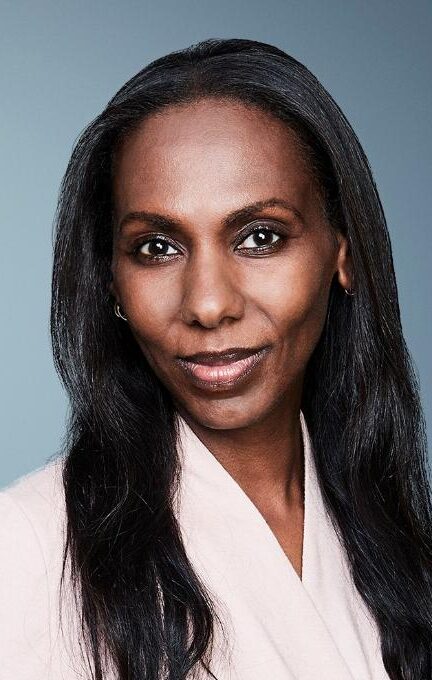 The Best in Show Television winner went to reporter Nima Elbagir (pictured) and CNN for their investigative report “Ethiopia: Exposing All The Hallmarks of a Genocide.”
The Best in Show Television winner went to reporter Nima Elbagir (pictured) and CNN for their investigative report “Ethiopia: Exposing All The Hallmarks of a Genocide.”
“This is extraordinary journalism by a fearless reporter unmatched by her peers. Remember her name. We look forward to much more in her promising career,” the judges said.
 Los Angeles Times photographer Kent Nishimura (pictured) was awarded Best in Show Photography for his pictures of the Jan. 6 Capitol Riot.
Los Angeles Times photographer Kent Nishimura (pictured) was awarded Best in Show Photography for his pictures of the Jan. 6 Capitol Riot.
“The horrors of the Jan. 6 insurrection are captured in Kent Nishimura’s pictures,” the judges said. “Kent Nishimura’s pictures show the angry mob storming the capitol, breaking through its doors and sending the joint session of Congress into hiding – fearing for their lives. In the mob’s wake lie destruction, death, mayhem and eventual retreat.”
In all, the Los Angeles Times took 19 awards, including five first places, eight second places and six third places.
Among the many other noteworthy winners:
Best International news beat coverage or continuing story by an individual or team went to “Vaccine Inequity in the Americas” by Shirsho Dasgupta, Jacqueline Charles, Rosmery Izaguirre, Adriana Brasileiro and Kevin G. Hall of the Miami Herald and the McClatchy Washington Bureau.
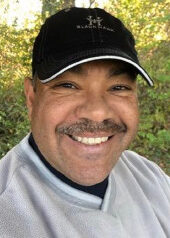 “Sports column by an individual” went to Marcus Hayes (pictured) of the Philadelphia Inquirer. The judges said Hayes “demonstrates excellence in sports opinion writing by leaning into his knowledge of the city and its teams and his curiosity about sports and athletes. His column on the Eagles’ record on hiring Black coaches takes a balanced and multifaceted look that relies heavily on Hayes’ experience and knowledge of the team.
“Sports column by an individual” went to Marcus Hayes (pictured) of the Philadelphia Inquirer. The judges said Hayes “demonstrates excellence in sports opinion writing by leaning into his knowledge of the city and its teams and his curiosity about sports and athletes. His column on the Eagles’ record on hiring Black coaches takes a balanced and multifaceted look that relies heavily on Hayes’ experience and knowledge of the team.
“And when he eviscerates the home team, like his takedown of the Phillies over mishandling a top prospect, he presents overwhelming evidence and reporting alongside a powerful voice. Every city’s sports fans need someone like Hayes.”
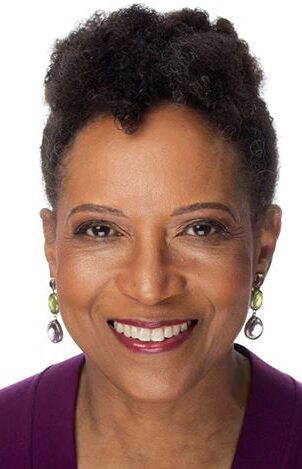 “Best blog” went to Mary C. Curtis (pictured) of Roll Call, with second place to another Black columnist, Boston’s Derrick Z. Jackson, for “Systemic Disaster: Racism Riddles Response to COVID.”
“Best blog” went to Mary C. Curtis (pictured) of Roll Call, with second place to another Black columnist, Boston’s Derrick Z. Jackson, for “Systemic Disaster: Racism Riddles Response to COVID.”
“Online video, 3 to 10 minutes, ” went to the CNN staff for “How marginalized communities in the South are paying for ‘green energy’ in Europe”
“NN exposes the environmental atrocities that plague marginalized communities. In this case, a rural, minority N.C. town where the forests are being clearcut to feed the EU’s clean-energy goals by creating biomass fuel from the trees. The destruction of the forests, the grinding of the trees, is creating its own ecological nightmare on the community in the name of clean energy.”
Short Takes
- “When you are the new kid in town, it sometimes takes time and a certain amount of missteps before you can find your way around,” according to the subscription-only NewsBlues site. “Unless you are treated to the grand tour by a veteran who is also smart enough to avoid those late-night pitfalls that every city has, lurking in the shadows for every fresh-faced newcomer. So Shannon Sims, anchor at Scripps’ WTMJ in Milwaukee, WI, Symone Woolridge [took] under her wing and on a tour of her favorite Milwaukee venues.”
- “‘ ‘Poisoned,’ a meticulously researched series by The Tampa Bay Times that revealed dangerous working conditions inside the Gopher Resource lead smelting plant in Tampa, Florida, is the winner of the 2021 Worth Bingham Prize for Investigative Journalism,” the Nieman Foundation announced Monday. “The series was produced by investigative reporters Corey G. Johnson, Rebecca Woolington and Eli Murray. They revealed that hundreds of employees, many of whom were Black and immigrants, regularly worked in clouds of poisonous lead dust and other toxic chemicals with respirators that did not adequately protect them from fumes.. . .”
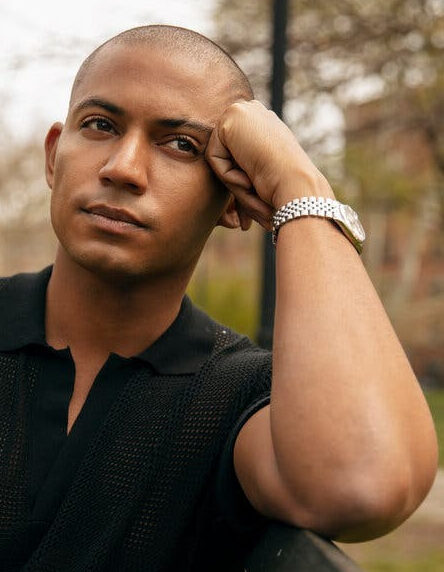 “Fire Island, more specifically the neighborhoods of Cherry Grove and the Pines, are often touted as two of the most welcoming destinations in the country for people in the LGBT+ community,” Tomik Dash wrote in the new magazine he launched on the Long Island, N.Y., destination for LGBT+ people. “But recent events have validated what I have known for a long time. These places don’t always feel welcoming to everyone, and particularly not to Black and brown people.” Dash’s comments are quoted in “A Black Man Ran to Gay Enclaves to Feel Safe. But Was He Welcome?” The piece was posted Friday in the real estate section of The New York Times and is written by Zach Stafford (pictured), former editor in chief of The Advocate.
“Fire Island, more specifically the neighborhoods of Cherry Grove and the Pines, are often touted as two of the most welcoming destinations in the country for people in the LGBT+ community,” Tomik Dash wrote in the new magazine he launched on the Long Island, N.Y., destination for LGBT+ people. “But recent events have validated what I have known for a long time. These places don’t always feel welcoming to everyone, and particularly not to Black and brown people.” Dash’s comments are quoted in “A Black Man Ran to Gay Enclaves to Feel Safe. But Was He Welcome?” The piece was posted Friday in the real estate section of The New York Times and is written by Zach Stafford (pictured), former editor in chief of The Advocate.
- Delano Massey, who led CNN’s Race and Equality team and served as a supervising producer, has been hired as managing editor of Axios Local, Axios announced Thursday. “Massey will lead the Axios Local newsroom alongside Executive Editor Jamie Stockwell as Axios Local adds 14 newsletters in the coming months. Axios has hired nearly 20 journalists to the Axios Local newsroom in 2022,” the publication said.
- “Combined with economic and cultural obstacles to a free press, limited access to government information makes journalism about Indigenous issues all the more challenging,” Hilary Niles wrote Thursday for the Center for Public Integrity. “But individually and through growing professional networks and initiatives, Native American journalists persevere — in both their reporting and an ongoing campaign to bring Freedom of Information to tribal nations and advance Indigenous press freedom. . . .”
 “Award-winning investigative reporters Yvette Cabrera (pictured) and Aaron Mendelson will join the Center for Public Integrity as the newsroom expands its reporting on inequality in the U.S.,” the organization announced Thursday. “Cabrera, a senior writer at environmental journalism nonprofit Grist, will start work May 9 as a senior reporter covering inequality in economic and social well-being.
“Award-winning investigative reporters Yvette Cabrera (pictured) and Aaron Mendelson will join the Center for Public Integrity as the newsroom expands its reporting on inequality in the U.S.,” the organization announced Thursday. “Cabrera, a senior writer at environmental journalism nonprofit Grist, will start work May 9 as a senior reporter covering inequality in economic and social well-being.
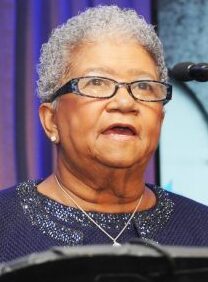 “Chicago Reader co-owner Len Goodman and three board members stepped down Tuesday amid protests from employees, freeing the embattled alternative newspaper to transition to a nonprofit organization,” Robert Channick wrote Tuesday for the Chicago Tribune. “The Reader has been stuck in limbo since December, when a planned transition to a nonprofit model was delayed over concerns about alleged censorship of an opinion piece written by Goodman, who pushed for an investigation into the matter and more representation on the successor board.” Channick also wrote, “Board members Dorothy Leavell (pictured), Sladjana Vuckovic and Carol Bell, who were aligned with Goodman’s concerns, announced they were also stepping down immediately. . . .” Leavell is publisher of the Chicago Crusader and Gary (Ind.) Crusader, and a former chairman of the National Newspaper Publishers Association, the black-press trade organization.
“Chicago Reader co-owner Len Goodman and three board members stepped down Tuesday amid protests from employees, freeing the embattled alternative newspaper to transition to a nonprofit organization,” Robert Channick wrote Tuesday for the Chicago Tribune. “The Reader has been stuck in limbo since December, when a planned transition to a nonprofit model was delayed over concerns about alleged censorship of an opinion piece written by Goodman, who pushed for an investigation into the matter and more representation on the successor board.” Channick also wrote, “Board members Dorothy Leavell (pictured), Sladjana Vuckovic and Carol Bell, who were aligned with Goodman’s concerns, announced they were also stepping down immediately. . . .” Leavell is publisher of the Chicago Crusader and Gary (Ind.) Crusader, and a former chairman of the National Newspaper Publishers Association, the black-press trade organization.
- The Democracy Fund “will strengthen and expand the pro-democracy movement with a focus on the power and leadership of communities of color,” President Joe Goldman wrote Thursday for the organization, which defines itself as “an independent and nonpartisan, private foundation that confronts deep-rooted challenges in American democracy while defending against new threats.” Goldman said, “We will weaken, dismantle, and defend against those who threaten our republic and oppose the ideals of an inclusive, multi-racial democracy. And we will pursue structural changes that can lock in new dynamics in this struggle.”
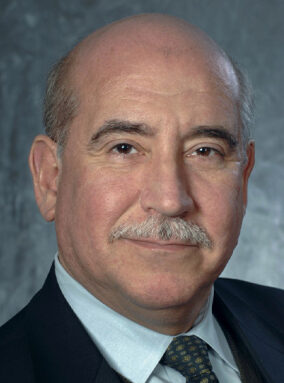 “Al Ortiz (pictured), a veteran CBS News executive who is also the current executive producer of ‘CBS Evening News,’ is set to leave the Paramount Global unit this summer after working his way up through the ranks over 43 years,” Brian Steinberg reported Wednesday for Variety. “Ortiz and CBS News executives announced the decision during a morning editorial call Wednesday. A search for a new top producer at ‘CBS Evening News’ is expected to start in the near future.”
“Al Ortiz (pictured), a veteran CBS News executive who is also the current executive producer of ‘CBS Evening News,’ is set to leave the Paramount Global unit this summer after working his way up through the ranks over 43 years,” Brian Steinberg reported Wednesday for Variety. “Ortiz and CBS News executives announced the decision during a morning editorial call Wednesday. A search for a new top producer at ‘CBS Evening News’ is expected to start in the near future.”
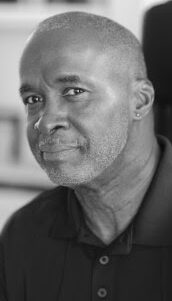 Retired journalist Glenn Proctor (pictured) was awarded the 2022 American Association of Suicidology’s Loss Survivor of the Year Award Thursday in Chicago. “He survived hearing the suicide of his grandfather in the next room when he was 23,” the association said. “He survived combat in the Vietnam War, cancer, alcoholism and long-term intermittent suicidal ideation. He later survived the suicide deaths of his brother in arms. He coped with these layers of trauma through writing. A successful journalist for 40 years, he shared in the Pulitzer Prize among other accolades before retiring in 2011. After retirement, Proctor has dedicated his life to suicide prevention. . . .” Proctor retired in 2011 as executive editor and vice president-news at the Richmond (Va.) Times-Dispatch.
Retired journalist Glenn Proctor (pictured) was awarded the 2022 American Association of Suicidology’s Loss Survivor of the Year Award Thursday in Chicago. “He survived hearing the suicide of his grandfather in the next room when he was 23,” the association said. “He survived combat in the Vietnam War, cancer, alcoholism and long-term intermittent suicidal ideation. He later survived the suicide deaths of his brother in arms. He coped with these layers of trauma through writing. A successful journalist for 40 years, he shared in the Pulitzer Prize among other accolades before retiring in 2011. After retirement, Proctor has dedicated his life to suicide prevention. . . .” Proctor retired in 2011 as executive editor and vice president-news at the Richmond (Va.) Times-Dispatch.
 Yvonne Latty (pictured), a multimedia journalist and professor at the Arthur L. Carter Journalism Institute at New York University; and Julie K. Brown, the Miami Herald investigative reporter known for exposing injustice in the sex-trafficking case of Jeffrey Epstein, are joining Temple University’s Klein College of Media and Communication this summer to launch its new Logan Center for Urban Investigative Reporting.” Latty is to be director of the Logan Center and Brown as a professional-in-residence for one year to help launch the center’s activities, David Boardman, dean of Klein College, announced Wednesday.
Yvonne Latty (pictured), a multimedia journalist and professor at the Arthur L. Carter Journalism Institute at New York University; and Julie K. Brown, the Miami Herald investigative reporter known for exposing injustice in the sex-trafficking case of Jeffrey Epstein, are joining Temple University’s Klein College of Media and Communication this summer to launch its new Logan Center for Urban Investigative Reporting.” Latty is to be director of the Logan Center and Brown as a professional-in-residence for one year to help launch the center’s activities, David Boardman, dean of Klein College, announced Wednesday.
- Updated entries in the Associated Press Stylebook say that “Inclusive storytelling seeks to truly represent all people around the globe,” that there should be no hyphen in “Arab American” or other dual-heritage terms and that the term “critical race theory” should be explained. “Don’t use CRT on later references.” In addition, LGBTQ is acceptable “in all references for lesbian, gay, bisexual, transgender and queer and/or questioning. In quotations and the formal names of organizations and events, other variations such as LGBTQIA are also acceptable with the other letters explained. It generally stands for intersex, and A can stand for asexual (a person who doesn’t experience sexual attraction), ally (some activists decry this use of the abbreviation for a person who is not LGBTQ but who actively supports LGBTQ communities) or both.”
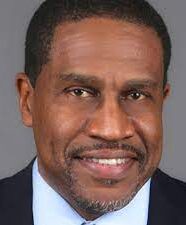 Boyzell Hosey (pictured), deputy editor for photography/multimedia at the Tampa Bay Times, is joining ProPublica as senior editor for visual storytelling, the investigative news site announced Tuesday. “In this new position, he will oversee managers of the newsroom’s art, graphics and video teams and work across the editorial staff to produce rich and cohesive packages that elevate our multimedia work and maximize its impact.”
Boyzell Hosey (pictured), deputy editor for photography/multimedia at the Tampa Bay Times, is joining ProPublica as senior editor for visual storytelling, the investigative news site announced Tuesday. “In this new position, he will oversee managers of the newsroom’s art, graphics and video teams and work across the editorial staff to produce rich and cohesive packages that elevate our multimedia work and maximize its impact.”
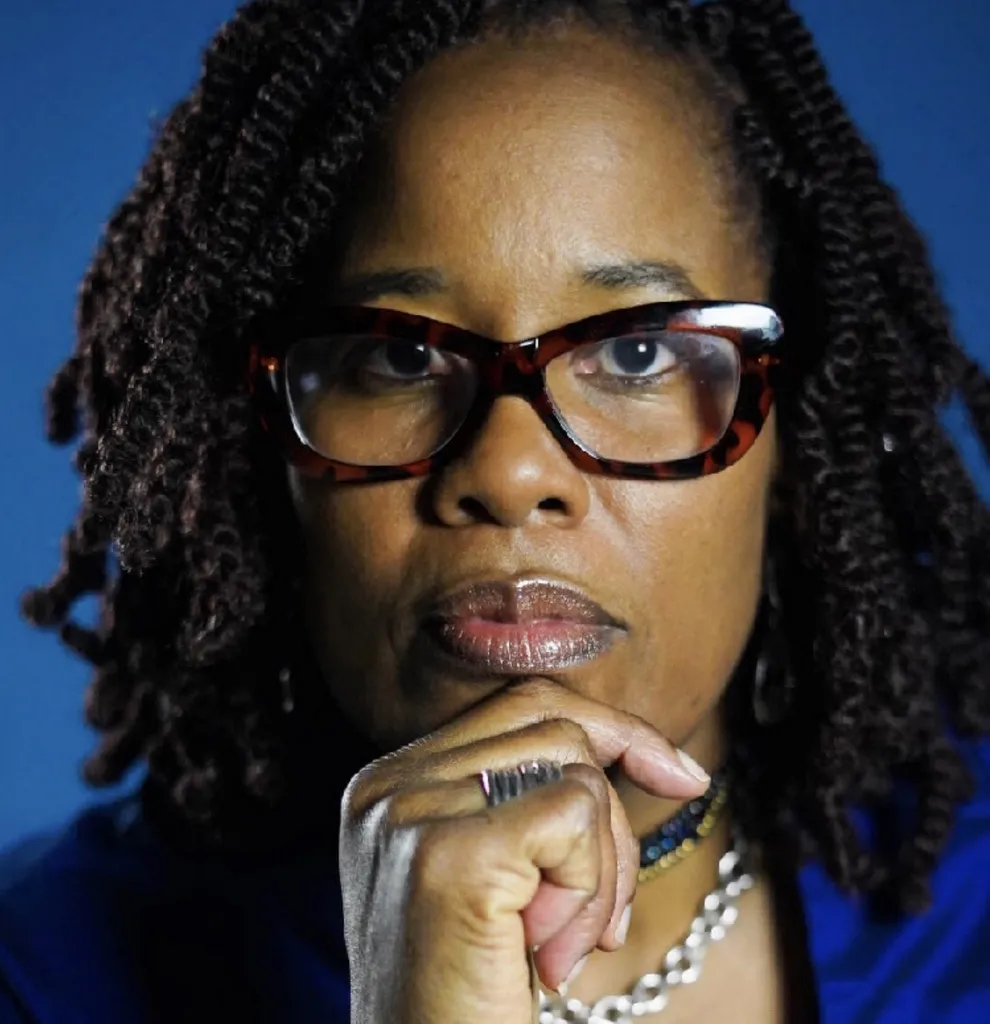 Karsonya “Kaye” Wise Whitehead,(pictured,) a Baltimore radio host, opinion writer, author and professor, won the 2021 Vernon Jarrett Medal for Journalistic Excellence from Morgan State University’s School of Global Journalism Communication, the school announced April 18. Whitehead was cited for a body of work that included key radio interviews on her talk show, “Today With Dr. Kaye,” on Baltimore’s WEAA-FM.
Karsonya “Kaye” Wise Whitehead,(pictured,) a Baltimore radio host, opinion writer, author and professor, won the 2021 Vernon Jarrett Medal for Journalistic Excellence from Morgan State University’s School of Global Journalism Communication, the school announced April 18. Whitehead was cited for a body of work that included key radio interviews on her talk show, “Today With Dr. Kaye,” on Baltimore’s WEAA-FM.
- A three-part series from Carolina Public Press reported that in many North Carolina counties, social service agencies are being led by people who don’t meet minimum professional standards required by law, the Fund for Investigative Journalism, a Public Press funder, noted Friday. “State agencies can’t prevent counties from hiring unqualified people and can’t reverse local hiring decisions. In at least one case, an unqualified agency director, married to the county sheriff, later admitted to a work-related felony. Workers in her office, meanwhile, unlawfully separated children from their families. One estimate put the county’s potential liability at $50 million for various illegal acts.” The series was reported and written by Kate Martin and edited by Frank Taylor.
- “The News Media Alliance, which represents newspaper publishers, will absorb the MPA – The Association of Magazine Media under a merger agreement awaiting NMA member approval,” Rick Edmonds reported April 13 for the Poynter Institute. David Chavern, president and CEO of the News Media Alliance, messaged Journal-isms April 18 that he would head the combined organization. The alliance has urged its members to consider partnering with community news outlets, such as the Black press.
 A lack of diversity among photographers led Polly Irungu (pictured) “to crave connection with other Black photographers, which ultimately inspired her to create Black Women Photographers, a global collective now with more than 1,000 active members,” Carlett Spike wrote April 21 for The Quill. “The community connects hiring editors with Black female photographers, while also offering artists talks, workshops, portfolio reviews and other educational programming to community members for free. The ultimate goal is quite simple: ‘I want us to be hired,’ says Irungu. . . .”
A lack of diversity among photographers led Polly Irungu (pictured) “to crave connection with other Black photographers, which ultimately inspired her to create Black Women Photographers, a global collective now with more than 1,000 active members,” Carlett Spike wrote April 21 for The Quill. “The community connects hiring editors with Black female photographers, while also offering artists talks, workshops, portfolio reviews and other educational programming to community members for free. The ultimate goal is quite simple: ‘I want us to be hired,’ says Irungu. . . .”
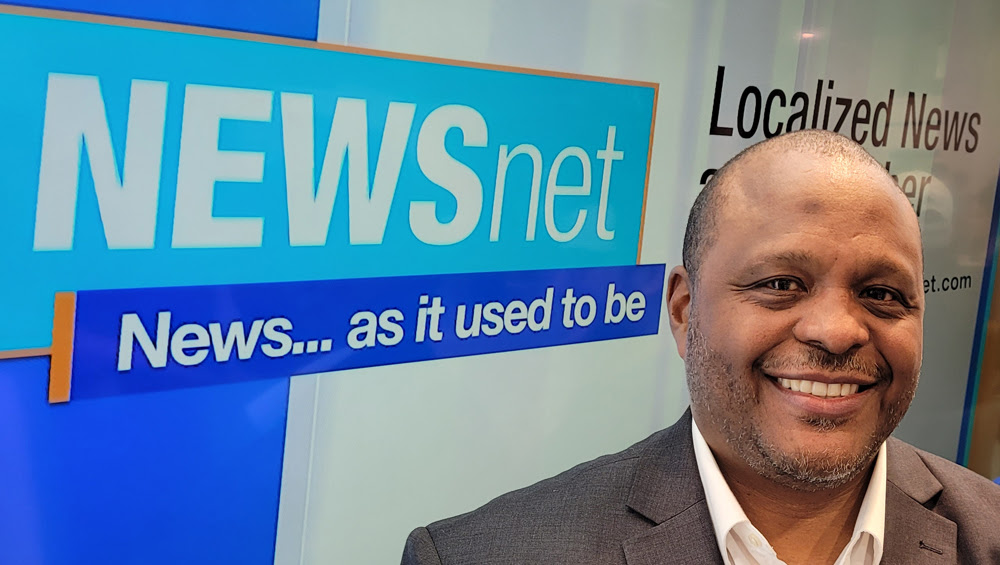 “NewsNet, the 24/7 news channel with a focus on the headlines, on Monday named Phil Hendrix (pictured) as the network’s news director,” TVNewsCheck reported. “Hendrix joins NewsNet from Black News Channel, where he was senior producer. In this new role, Hendrix will lead the news operations of NewsNet.” Separately, Walter Morris, Black News Channel’s Los Angeles-based correspondent, has landed at WRC-TV in Washington, Kevin Eck reported Tuesday for TVSpy. Black News Channel announced March 25 it was filing for bankruptcy protection, putting its staff out of work.
“NewsNet, the 24/7 news channel with a focus on the headlines, on Monday named Phil Hendrix (pictured) as the network’s news director,” TVNewsCheck reported. “Hendrix joins NewsNet from Black News Channel, where he was senior producer. In this new role, Hendrix will lead the news operations of NewsNet.” Separately, Walter Morris, Black News Channel’s Los Angeles-based correspondent, has landed at WRC-TV in Washington, Kevin Eck reported Tuesday for TVSpy. Black News Channel announced March 25 it was filing for bankruptcy protection, putting its staff out of work.
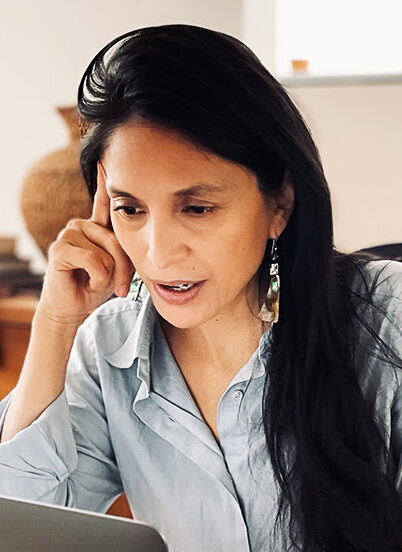 Jenni Monet (pictured), a tribal citizen of the Pueblo of Laguna who created her own weekly newsletter “Indigenously,” has won an Izzy Award, named after maverick journalist I. F. “Izzy” Stone, who launched I. F. Stone’s Weekly in 1953 and exposed government deception, McCarthyism, and racial bigotry. “Indigenously” covers Native American communities within the U.S. Monet said she has struggled for support from editors for the stories she pitched, Olivia Stanzl wrote Wednesday for the Ithican. The award from the Park Center for Independent Media also went to journalist Greg B. Smith of The City in New York and the International Consortium of Investigative Journalists.
Jenni Monet (pictured), a tribal citizen of the Pueblo of Laguna who created her own weekly newsletter “Indigenously,” has won an Izzy Award, named after maverick journalist I. F. “Izzy” Stone, who launched I. F. Stone’s Weekly in 1953 and exposed government deception, McCarthyism, and racial bigotry. “Indigenously” covers Native American communities within the U.S. Monet said she has struggled for support from editors for the stories she pitched, Olivia Stanzl wrote Wednesday for the Ithican. The award from the Park Center for Independent Media also went to journalist Greg B. Smith of The City in New York and the International Consortium of Investigative Journalists.
- An exhibit documenting violence against and killings of Mexican Americans and Mexicans won a $74,000 grant from the American History Association “that will be used to spread knowledge about an overlooked part of American history,” Suzanne Gamboa reported April 20 for NBC News. “The bilingual exhibit, titled ‘Life and Death on the Border, 1910-20,’ by the Refusing to Forget project, recounts a decade of state-sanctioned racial violence and terrorism that occurred largely on the Texas-Mexico border in the 1900s. . . . the organizers hope to take the exhibit to cities across Texas next year, coinciding with the bicentennial of the Texas Rangers.”
 “Jane Monreal (pictured), a former WFTX-Fox 4 anchor, has tacked on an age discrimination claim to her federal lawsuit against the Southwest Florida news station and its parent company,” Rachel Heimann Mercader reported Monday, updated Tuesday, for the Fort Myers News-Press. “The lawsuit cites the Age Discrimination in Employment Act of 1967 and race discrimination and retaliation pursuant to Title VII of the Civil Rights Act of 1964, alleging the station participated in discrimination and sabotaged her broadcasting career when it terminated her contract soon after she voiced complaints about race discrimination at the news station.”
“Jane Monreal (pictured), a former WFTX-Fox 4 anchor, has tacked on an age discrimination claim to her federal lawsuit against the Southwest Florida news station and its parent company,” Rachel Heimann Mercader reported Monday, updated Tuesday, for the Fort Myers News-Press. “The lawsuit cites the Age Discrimination in Employment Act of 1967 and race discrimination and retaliation pursuant to Title VII of the Civil Rights Act of 1964, alleging the station participated in discrimination and sabotaged her broadcasting career when it terminated her contract soon after she voiced complaints about race discrimination at the news station.”
- The podcast “A reckoning in Tulsa” from National Geographic won a Webby Award for diversity and inclusion. “On the 100th anniversary of the Tulsa Race Massacre, a look back at one of the worst incidents of racial violence in American history — as the search for mass graves of the victims continues,” a description reads. The Webbys honor “The best of the Internet.” Carla Wills produced the episode.
 NPR has promoted Laura Soto-Barra (pictured) to vice president, research, archives and data strategy; Chris Nelson (center) to senior vice president, technology operations; and Keith Jenkins to vice president of visuals and music strategy. For 17 years, Soto-Barra, who is from Chile, “has led a team of researchers, software engineers, historians, curators, grant writers, data specialists, taxonomists, archivists, trainers, and product managers,” NPR said. The promotion of Jenkins, who was senior director of music and visuals, “recognizes that music and visuals are core to NPR’s News and Programming strategies to serve audiences across platforms, in particular younger and more diverse audience members,” according to the April 21 announcement.
NPR has promoted Laura Soto-Barra (pictured) to vice president, research, archives and data strategy; Chris Nelson (center) to senior vice president, technology operations; and Keith Jenkins to vice president of visuals and music strategy. For 17 years, Soto-Barra, who is from Chile, “has led a team of researchers, software engineers, historians, curators, grant writers, data specialists, taxonomists, archivists, trainers, and product managers,” NPR said. The promotion of Jenkins, who was senior director of music and visuals, “recognizes that music and visuals are core to NPR’s News and Programming strategies to serve audiences across platforms, in particular younger and more diverse audience members,” according to the April 21 announcement.
- For the launch of the United Nations’ International Decade of Indigenous Languages, the Native American Journalists Association announced April 22 that it had produced an Inuktitut-translated Inuit Media Guide. Inuktitut is one of the principal Inuit languages of Canada, and Inuit refers to original inhabitants of Canada and Greenland. “We believe that journalism and Indigenous storytelling contributes to the reclamation of our languages. . . . We are starting with Inuktitut today but there’s more to come,” said Francine Compton, NAJA president and a citizen of Sandy Bay Ojibway First Nation.

- “Mohammed Nour Matar had become a citizen journalist during Syria’s civil war, and he was often out with his camera documenting the conflict,” Bassem Mroue reported April 21 for the Associated Press. “He went missing on Aug. 13, 2013 while covering an explosion in Raqqa that went off outside the offices of the Ahfad al-Rasoul faction, one of several insurgent groups that were rivals” of the Islamic State group in Syria. “He was 21 at the time and was working on a documentary about Raqqa and its residents’ opposition to IS. . . . But as of 2014, the family lost any proof of life. . . . Also a journalist, Amer Matar began a few years ago collecting thousands of IS documents and 3D photographs of IS detention centers. He now works with activists from Syria, Iraq, Germany, France, Japan and the U.S. to set up a virtual museum about the extremists. He said the aim is to have a platform where the families of the missing can find information about their loved ones, where they can walk virtually inside the jails, see names of detainees, read documents and witness sites of mass graves and information about those buried there, whether in Syria or in Iraq. . . .”
‘[btnsx id=”5768″]
To subscribe at no cost, please send an email to journal-isms+subscribe@groups.io and say who you are.
Facebook users: “Like” “Richard Prince’s Journal-isms” on Facebook.
Follow Richard Prince on Twitter @princeeditor
Richard Prince’s Journal-isms originates from Washington. It began in print before most of us knew what the internet was, and it would like to be referred to as a “column.” Any views expressed in the column are those of the person or organization quoted and not those of any other entity. Send tips, comments and concerns to Richard Prince at journal-isms+owner@
View previous columns (after Feb. 13, 2016).
View previous columns (before Feb. 13, 2016)
- Diversity’s Greatest Hits, 2018 (Jan. 4, 2019)
- Book Notes: Is Taking a Knee Really All That? (Dec. 20, 2018)
- Book Notes: Challenging ’45’ and Proudly Telling the Story (Dec. 18, 2018)
- Book Notes: Get Down With the Legends! (Dec. 11, 2018)
- Journalist Richard Prince w/Joe Madison (Sirius XM, April 18, 2018) (podcast)
- Richard Prince (journalist) (Wikipedia entry)
- February 2018 Podcast: Richard “Dick” Prince on the need for newsroom diversity (Gabriel Greschler, Student Press Law Center, Feb. 26, 2018)
- Diversity’s Greatest Hits, 2017 — Where Will They Take Us in the Year Ahead?
- Book Notes: Best Sellers, Uncovered Treasures, Overlooked History (Dec. 19, 2017)
- An advocate for diversity in the media is still pressing for representation, (Courtland Milloy, Washington Post, Nov. 28, 2017)
- Morgan Global Journalism Review: Journal-isms Journeys On (Aug. 31, 2017)
- Diversity’s Greatest Hits, 2016
- Book Notes: 16 Writers Dish About ‘Chelle,’ the First Lady
- Book Notes: From Coretta to Barack, and in Search of the Godfather
- Journal-isms’ Richard Prince Wants Your Ideas (FishbowlDC, Feb. 26, 2016)
- “JOURNAL-ISMS” IS LATEST TO BEAR BRUNT OF INDUSTRY’S ECONOMIC WOES (Feb. 19, 2016)
- Richard Prince with Charlayne Hunter-Gault, “PBS NewsHour,” “What stagnant diversity means for America’s newsrooms” (Dec. 15, 2015)
- Book Notes: Journalists Follow Their Passions
- Book Notes: Journalists Who Rocked Their World
- Book Notes: Hands Up! Read This!
- Book Notes: New Cosby Bio Looks Like a Best-Seller
- Journo-diversity advocate turns attention to Ezra Klein project (Erik Wemple, Washington Post, March 5, 2014)
When you shop @AmazonSmile, Amazon will make a donation to Journal-Isms Inc. https://t.co/OFkE3Gu0eK
— Richard Prince (@princeeditor) March 16, 2018
![]()

